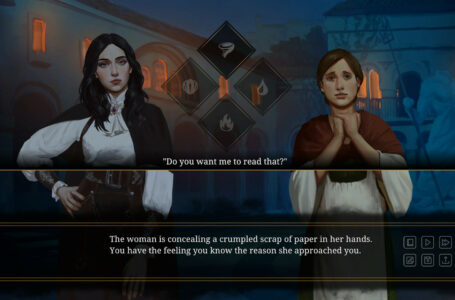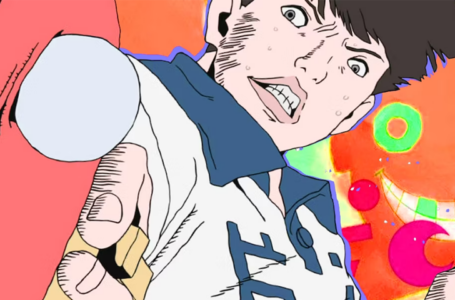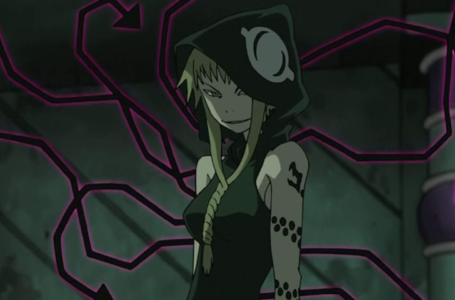The disappointment of The Deer King
The Deer King is the most recent anime film I’ve had the chance to see in a cinema — an event I always feel is worth chronicling in a review to cap off the overall experience. And there’s been some great stuff of late.
This year alone, Sing a Bit of Harmony remains my runaway favourite anime movie of 2022 for being both poignant and entertaining. Meanwhile, Jujutsu Kaisen 0 provided a splendid adaptation of the manga prequel of the same name, well and truly delivering more context on its world’s past events. And Belle dropped the ball on pretty much everything other than its pretty visuals and memorable OST.
With The Deer King, sadly mediocrity strikes yet again despite the number of notable names attached to it. It’s a similar deal to Belle, which makes it a bit of a let-down. But let’s get into it regardless.
The movie follows the quiet former soldier Van, who is a prisoner enslaved to life in a salt mine. He has a chance encounter with a wolf carrying a mysterious disease known as Mittsual or Black Wolf Fever, and ends up bitten but free from his bonds; he’s one of only two survivors of the attack on the mine, with the other being a young, innocent child named Yuna.
With the pair sharing the same fate, they end up on the run in an attempt to live a life of peace together, with the dream of ending up far from any further involvement in the rising turmoil between the empire of Zol and the land of Aquafa.
A solid backing ultimately hindered by its poor execution
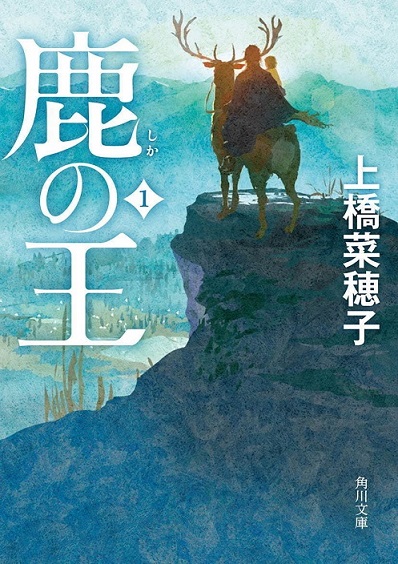
The Deer King is an adaptation of Nahoko Uehashi’s novel series of the same name. Uehashi had gone on record to say that she had concerns for how a nearly two-hour long movie could accurately depict and explore the world she had spent two novels worth of worldbuilding on, and while she favoured the end result, I personally feel that the movie really did fail to let everything she had created truly breathe.
For example, the movie starts with a text block of exposition to not only set the scene but also provide a necessary amount of information on the movie’s world and its history. But there are also multiple rapid-fire scene transitions — sometimes just mere seconds of a landscape before cutting back to the current scene. It all feels like it’s been put there just for the sake of it rather than for any meaningful purpose.
The movie also doesn’t give its characters anywhere near enough depth — and in many cases fails to provide a simple explanation for their motives. The character for whom this is a particularly big issue is the main villain; the movie never directly expresses the intentions of its “Big Bad” and instead merely alludes to it. Considering the core theme of the movie is letting go of hatred to stop an endless cycle of prejudice, there’s a real missed opportunity to add some depth here.
Elsewhere, the film proposes plenty of interesting things and then fails to explain them. The visually striking, ominous moment where we see stilt-walking, poison dart-blowing opponents hiding in a dense fog and traversing unstable terrain is over unceremoniously within a single scene.
It’s disappointing how this encounter has no sense of build-up and any staying power; it’s just gone in the space of about three minutes, and instead solidifies the sense that this movie’s pacing is all over the place. It’s too quick in scenes that could do with further exploration, and takes far too long in other areas, with repeated landscapes and areas — sometimes back to back. This got rather distracting and tiresome.
The fact that some big names were associated with the project didn’t help the hype, since they set expectations high. Its two directors have ties to Studio Ghibli and Madhouse – Masayuki Miyaji was assistant director of Spirited Away, while Masashi Ando was previously the character designer and animation director of Your Name., Spirited Away, Paprika, Tokyo Godfathers and When Marnie Was There.
Credit should be given where it’s due, though. The sound design is satisfying as you would expect from Haikyuu!!’s Hiromi Kikuta, the stunning OST from the award-winning Harumi Fuuki is as wonderful as ever, the animation from Production I.G is amazing and milet’s theme song “One Reason” is a delight to hear when closing out the movie. In these aspects, The Deer King thrived; sadly, it’s let down by every other factor.
A story that demands attention, but fails to keep it
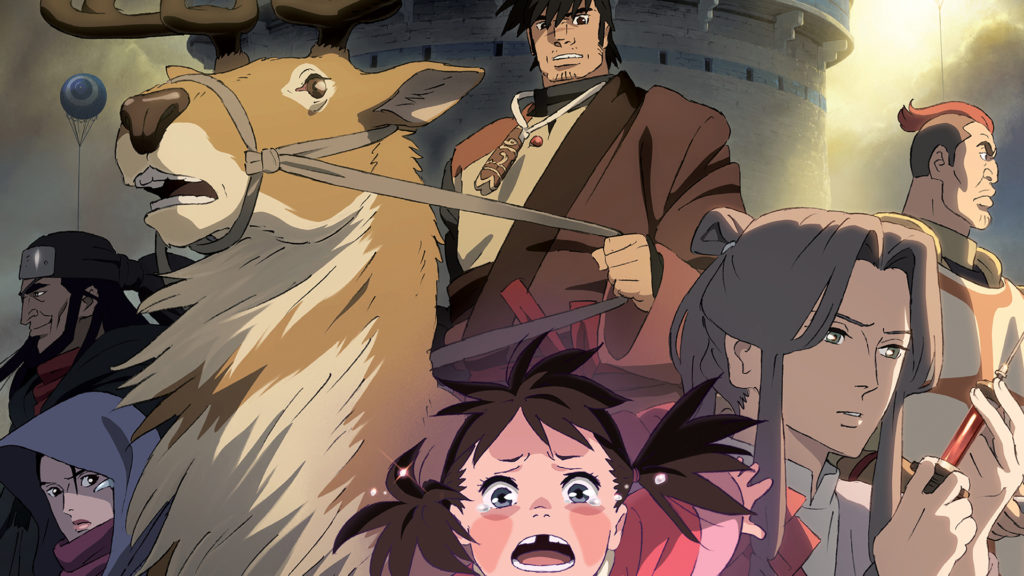
The Deer King is trying to juggle a lot of things, but this ultimately holds it back; the movie feels like it would have been better served being more contained, allowing its world and characters to develop and be explored to a far better degree than what we actually got.
The movie involves plot threads that attempt to cover many, many different issues. There’s rival nations, politics, discrimination (particularly during wartime), the drama of “found family” between Van and Yuna, and the timely subject of a disease that instils fear and resentment in people, particularly when there are already tensions between nations such as Zol and Aquafa.
With so many elements at play, scenes have a tendency to jump around, particularly in the latter part of the movie where multiple characters are moving across the world and following their own threads. Many of these key contributors to the overall sense of worldbuilding leave far too many questions that The Deer King fails to answer — or even acknowledge in some cases.
The very worst is the sheer sense of vagueness to it all — with the worst being the unknown events between the two rival nations. There’s genuine intrigue in what transpired between them before the events of the movie — but we’ll never know from The Deer King alone.
And that’s not all; with the Black Wolf Fever being such a massive element of its plotline, we’re left in the dark about its origins — and the leader of the Ossum Dogs’ backstory is left with many unanswered questions, leaving his intentions murky at best.
The movie demands a sequel to answer all these questions that it fails to address, and feels more like a setup for greater things to come. At least it can boast a cute and endearing dynamic between its starring characters as its main selling point.
A wholesome core
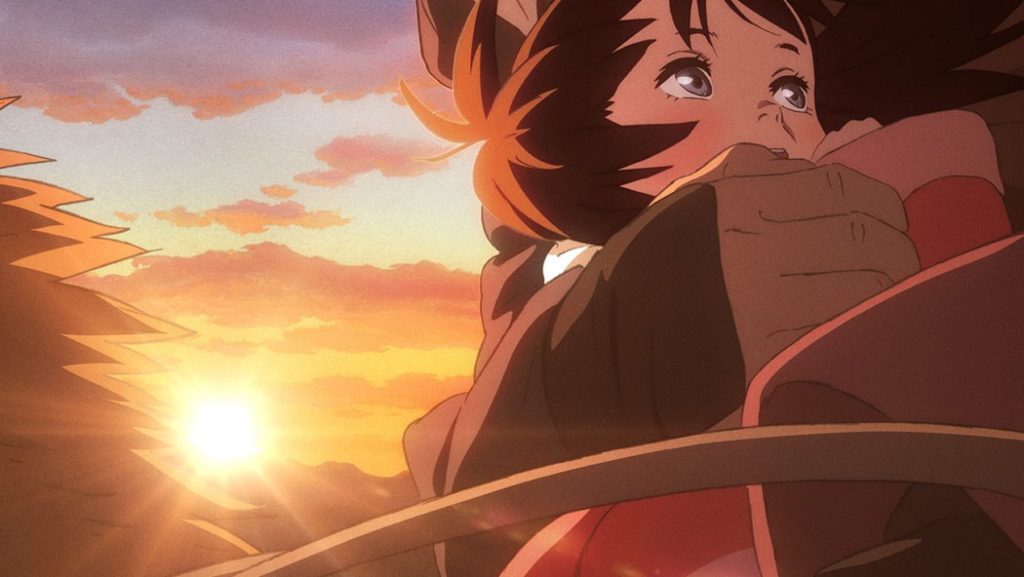
Van and Yuna are the main reason you should watch The Deer King — but even as the heart and soul of the experience, they fail to fully deliver. While their dynamic is fleshed out and endearing. There’s not enough emotional payoff to the conflicts surrounding them and the way they are forced apart. This is mostly an issue for the finale, where the tragedy of how it all ends is dampened somewhat by everything feeling so underwhelming.
Repeated story beats, poor pacing and a lack of any real character complexity means that the pair are only really interesting as a unit, and not on their own. At the same time, Van’s major personal ordeal is hammered home rather too many times, resulting in it feeling rather forced — and that other characters could have made better use of this time to make them feel authentic. As it stands, the supporting characters are given far too little time to shine, meaning most of their actions feel ambiguous or implied.
A prime example of this is with Sae, the quiet female tracker who ends up switching sides over the course of the movie. She could have been better served with a deeper exploration of her backstory — it would better explain where she ends up in the post-credits scene. While some viewers may correctly assume a detail of her past that she shares with Yuna, her relationship could have been better illustrated.
On the flip side, there is Hossal, a gifted physician who provides the majority of the movie’s humour through his banter with his assistant Makoukan. Makoukan is a knuckleheaded hunk with a heart of gold and a total inability to handle himself in any kind of combat.
As the brains behind some of the grander happenings in the movie, his character carries a sense of serious sensibility as a doctor: one who shows great concern for both individuals and the greater threat at large. His intentions are to find a cure for the disease, and he also acts as the movie’s narrator — which, of course, seals his fate early on.
Despite the movie’s flaws, the major characters have believable motives and very realistic conflicts that make them feel human. There are even fairly major characters who die in quite a realistic fashion, emphasising the point that how despite this is a fantasy world, nothing is off the table in terms of potential happenings.
Humans remain fragile and easy to break, and it’s through sheer resilience that many manage to keep their eyes and mind set on their respective missions. Some may do so out of a sense of a father’s duty; others may do so for the greater good of mankind. All in all, it makes for quite a poignant sense of characterisation.
Conclusion
To sum up, The Deer King is a missed opportunity. It’s not one you should be running out to watch in the cinema, nor is there any great rush to see it when it becomes available elsewhere. It was enjoyable enough and felt somewhat nostalgic in how its focus was on the bond between the main characters rather than the core “action” of the world, but ultimately it’s not one that will likely be remembered too fondly.
While it leaves a lot to be desired as Masashi Ando’s directional debut, the only way to go from here is up, and I’m sure he’ll do an even better job with his projects to come.
Check for listings of cinema viewings of the movie here.
Join The Discussion
Rice Digital Discord
Rice Digital Twitter
Rice Digital Facebook
Or write us a letter for the Rice Digital Friday Letters Page by clicking here!
Disclosure: Some links in this article may be affiliate links, which means we may earn a small commission if you make a purchase after clicking on them. This is at no additional cost to you and helps support Rice Digital!
- Sigh of the Abyss: Shadow Bonds – Prologue Review - October 7, 2023
- Is She The Wolf? is wickedly addicting TV - October 6, 2023
- The steady consumption of Slow Damage - October 5, 2023




